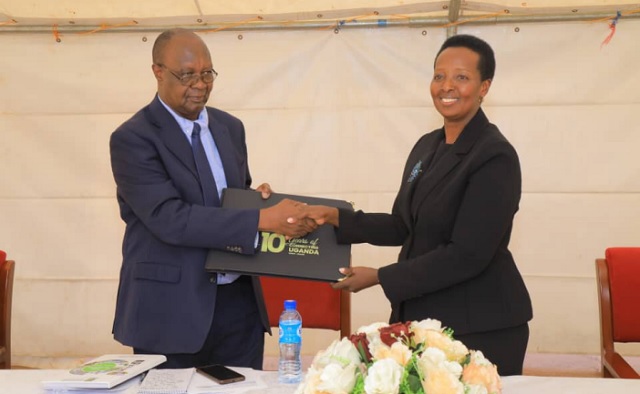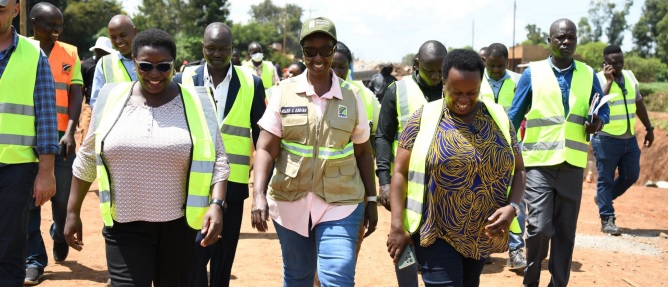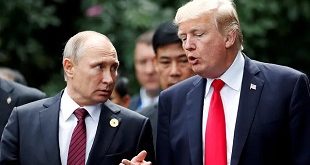
How ego and greed sunk 16-year roads agency
On October 10, 2024, then executive director of Uganda National Roads Authority (UNRA) Allen Kagina embarked on her last tour of roads as the boss of the 16-year-old roads that was formed to develop a modern road network.
The tour was in the oil region that was a critical part of the national road network that Kagina had made a staple of her nine-year stint at UNRA.
During a stopover on one of the roads with a stony escarpment providing a sharp background, staff took turns taking pictures with Kagina in what was a farewell moment for her as her contract ran out. In a rare moment, even her security detail joined in. The photo moment happened as the merger of UNRA with the Ministry of Works loomed. It turned out to be a farewell tour for everyone.
Two months later, the denouement of UNRA played out when Kagina handed over a report to the minister of state for works Musa Ecweru at the ministry headquarters on Dec. 30. It was the climax of a long running saga dubbed “rationalisation of government agencies” that started in 2018 and had UNRA at the tip of its spear.
According to former UNRA staff, trouble for Kagina and UNRA started in 2016 when they raised questions about the credibility of a company called Dott Services over shoddy work on the Tororo-Mbale-Soroti Road; a 158km road that has undergone several phases of construction by the company. Dott Services is affiliated to a powerful figure in the Ugandan government who was also the chief architect of the rationalisation.
The complaints about Dott Services happened just a year after Kagina was appointed to take over UNRA after years of mismanagement at the body. She carried out a restructuring where all former staff reapplied for their jobs. In this restructuring, there was re-evaluation of old contractors who were tied to the old UNRA. It was in these circumstances that the headbutting with Dott Services happened.
As soon as there were complaints on the company, there were summons issued and some UNRA staff were almost fired. Then in 2018, the government announced plans to reduce on government wastage by merging agencies with duplicating roles. Seven years down the road, UNRA is the only agency of its size and scope that has been slashed.
Bruised egos
“Trust Museveni’s ego,” said a former UNRA employee on December 27, 2024, when Kagina sent her last email to the over 1200 staff essentially telling them about the closure of the organisation.
Another former staff told The Independent, “People are really angry not for the loss of jobs, for they already have lots of options but the fact that no reasons was seen but ego and greed to betray the future of this country.”
He added, “People were lured from abroad with exceptional high qualifications to come back home and work for UNRA with the faith that Allen Kagina was in charge.”
Kagina spent the last couple of years fighting to save UNRA and sources say the battle had drained her because of the forces she was countering.
As the collapse of UNRA dawned, there was a tussle over termination benefits with the ministry of works demonstrating how personal the whole issue had become.
“But you can imagine guys did not want to give us termination letters. She fought that fight with them. She went out of her skin and told them it doesn’t matter even if they don’t ever pay her anything or ever grant her any job…but she would never ever allow UNRA staff to ever be denied the benefits they are entitled to.”

The fate of ongoing road contracts hangs in balance as is the loans that were handed to UNRA by donor agencies like the African Development Bank. “What they will do, will be conditions to offer loans and will determine which consultant companies they will want to deal with. guess which people are now going to form consultant companies?” he asked.
The source said, “And they will ask for a lot of money which the funders will be willing to pay and government will be desperate to take the loans and the whole thing will spiral the cost of any road project.”
He added, “Imagine a guy who monitors the health of the Nile Bridge cables? A guy who has the software that only he owns and has the power over those cables?”
Ministry of Works has now fully taken over road construction roles. Some former UNRA staff are now in the process of being subsumed in the ministry.
Since the merger plan first made the rounds years ago, there was a lot of unease surrounding the body. On various occasions, President Museveni made several public comments on why UNRA had to be shut down leaving the organisation in inertia and the staff demoralized.
A number of staff like engineers and other technical personnel jumped ship in the last few years as the merger hovered over UNRA and imperiled their career paths. There was some reprieve when UNRA celebrated 15 years in July 2023 but it appeared that forces pushing for the shutdown carried more weight.
Works Minister Gen. Katumba Wamala held the whip to enforce the mainstreaming of UNRA into the ministry as it attempted to fight back.
“I do not know where the concept of creating agencies came from. It looks like the idea was to weaken the central government. Now that government has woken up you are going to hold us accountable and we will deliver,” said Gen. Wamala after parliament repealed the Uganda Road Fund Act, 2008 and the Uganda National Roads Authority Act 2006 which created both agencies.
What was UNRA is now a department called National Roads under the ministry of works. The Ministry always complained that its vote was not even a quarter of what UNRA was being allocated in spite of being the supervisor of the latter. But those who worked at the defunct agency said the ministry will soon realise what they have to deal with.
“Man, even ministry guys are in panic. They wanted this thing so bad and until reality has hit them with how much tasks and risks they have at hand,” said a former UNRA employee.
New loans
Meanwhile as a sign of continuity, parliament approved new loans for road development: US$15.22 million and US$73.15 million from the African Development Bank Group for the construction of Laropi-Moyo-Afoji Road and the Katuna-Muko-Kamuganguzi Road.
The approval followed a motion presented by the Minister of State for Finance, Planning, and Economic Development (General Duties), Henry Musasizi, during a plenary session chaired by Speaker Anita Among.
The decision originated from a government proposal presented in September 2024, seeking additional funding from the African Development Fund for the same projects.
For the sake of ongoing projects under UNRA, Parliament’s Committee on Physical Infrastructure, asked government to ensure minimal disruption, conduct thorough contract reviews to identify restrictive clauses, renegotiate contracts and make plans to mitigate potential projects suspension and penalties.
“The committee observed that some of the existing contracts contain clauses that bind government to a specific implementing agency, notably UNRA. Any deviation from the contractual terms, including transfer of projects to alternative agencies could trigger severe consequences such as partial or full suspension of the project,” said Dan Atwijukire, the chairperson of the committee.
The committee asked for a transitional management period of three years to ensure seamless transfer of UNRA’s functions to the ministry, noting that it will enable the ministry to absorb UNRA’s responsibilities, mitigate potential disruptions, and guarantee uninterrupted road development and maintenance.
Some of the signature projects by UNRA include the Kampala Northern Bypass, the Entebbe Expressway, the Kampala Flyover Project, the Jinja Nile Bridge, and several roads crisscrossing the country.
UNRA said over 2,670.19 kms of roads had been upgraded and 54 bridges completed, improving access to remote areas, reducing travel times by over 50% in some regions of the country.
It added that 668.1 kms of roads were under implementation across 14 ongoing projects and a total of 6,170 kms of future road projects had been designed and planned for construction.
 The Independent Uganda: You get the Truth we Pay the Price
The Independent Uganda: You get the Truth we Pay the Price



